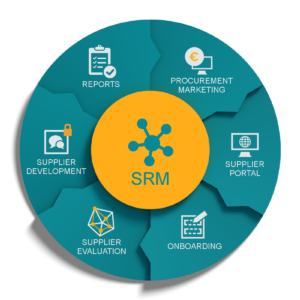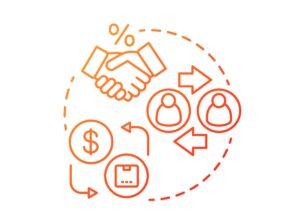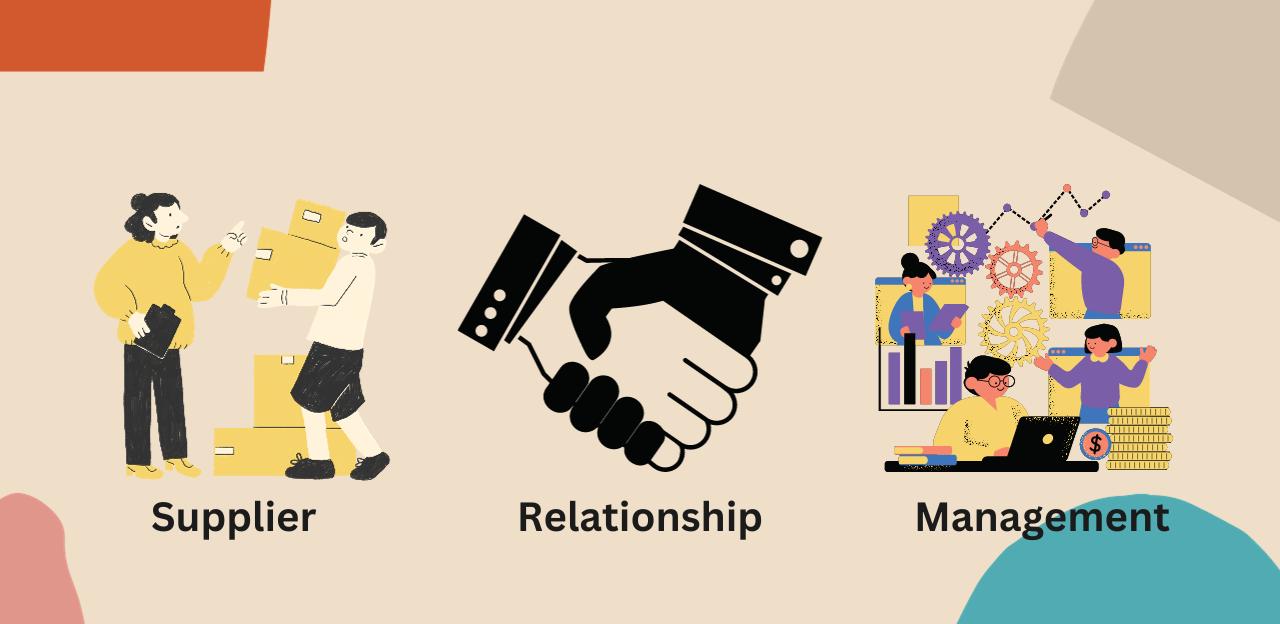In today’s competitive business environment, building strong relationships with suppliers is no longer a luxury – it’s a necessity. Supplier Relationship Management (SRM) is a strategic approach that goes beyond simply procuring goods and services. It’s about fostering collaborative partnerships that deliver mutual benefits and ensure long-term success for both parties. This comprehensive guide will equip you with the knowledge and tools to navigate the world of SRM effectively. We’ll delve into the core concepts, explore the benefits of successful SRM, and provide actionable steps for implementing a winning strategy in 2024.
What is Supplier Relationship Management (SRM)?

SRM is a systematic process of evaluating, collaborating with, and managing relationships with your vendors. It encompasses the entire supplier lifecycle, from initial selection and onboarding to ongoing performance monitoring and continuous improvement. Effective SRM involves a holistic approach that encompasses communication, trust, and alignment, enabling businesses to respond quickly to changing market conditions, improve quality, and reduce costs.
Why is SRM important?
In today’s fast-paced and interconnected business landscape, the relationships you build with your suppliers are more crucial than ever. Effective supplier relationship management (SRM) is the backbone of a successful and resilient supply chain, and it’s essential to recognize the significant impact it can have on your organization’s bottom line. Strong supplier relationships offer a multitude of benefits for your business:
Cost reduction: Effective collaboration with suppliers can lead to better pricing, optimized inventory management, and reduced risks associated with supply chain disruptions.
Improved quality and innovation: Strong partnerships foster open communication, allowing suppliers to provide valuable insights into product development and quality improvement.
Enhanced efficiency: Streamlined communication, automated processes, and collaborative planning can significantly improve operational efficiency.
Increased agility: Strong supplier relationships enable you to adapt to market changes quickly and efficiently, ensuring a competitive edge.
Reduced risk: Building trust and transparency with suppliers minimizes disruption risks and ensures a reliable source of materials and services.
The essential elements of a successful SRM strategy
At the heart of a thriving Supplier Relationship Management (SRM) strategy lies a set of essential elements that, when carefully crafted and implemented, can propel your organization towards unprecedented success. These crucial components form the foundation upon which a robust SRM framework is built, fostering an environment of trust, collaboration, and mutual benefit. A well-defined SRM strategy must encompass:
Clearly defined goals: Don’t just aim for “good” supplier relationships. Define what success looks like for your organization. This could include cost reductions, improved quality control, faster innovation cycles, or a combination of factors. Align these goals with your overall business strategy.
Supplier segmentation: Categorize your suppliers based on their criticality and spend volume. High-impact, high-spend suppliers require a more strategic approach, while low-impact suppliers might benefit from a streamlined process.
Performance measurement: Establish clear Key Performance Indicators (KPIs) to track supplier performance in areas like quality, delivery, and cost.
Collaboration and communication: Foster open communication channels with your suppliers, encouraging regular feedback and knowledge sharing.
Risk management: Identify and mitigate potential risks associated with your suppliers, such as disruptions, quality issues, or financial instability.
Continuous improvement: Regularly assess your SRM processes and identify opportunities for improvement. Embrace innovative technologies to automate tasks and optimize communication.
Implementing a winning SRM strategy in 2024
it’s essential to reassess and revitalize your supplier relationship management (SRM) strategy to stay ahead of the curve. In 2024, implementing a winning SRM strategy requires a deliberate and structured approach. It’s no longer just about managing transactions, but about fostering collaborative partnerships that drive mutual growth and innovation. To achieve this, you’ll need to
Assess your current State: Evaluate your existing supplier relationships and identify areas for improvement.
Develop a SRM policy: Establish a clear policy outlining your expectations for supplier performance and collaboration.
Segment your suppliers: Categorize your suppliers based on criticality and implement tailored strategies for each segment.
Onboard new suppliers effectively: Set clear expectations from the outset and establish open communication channels.
Implement performance management: Define KPIs, track supplier performance, and provide regular feedback.
Leverage technology: Utilize SRM software to automate tasks, streamline communication, and gain data-driven insights.
Foster collaboration: Develop collaborative initiatives with key suppliers to identify opportunities for mutual benefit.
Continuously improve: Regularly review your SRM strategy, measure its effectiveness, and adapt based on learnings and market trends.
Building trust and collaboration with suppliers

Building trust and collaboration with suppliers is the foundation upon which successful supplier relationships are built. It’s the glue that holds the partnership together, allowing both parties to work seamlessly towards a common goal. When suppliers feel valued, respected, and heard, they are more likely to be invested in your success, and willing to go the extra mile to meet your needs. By fostering a culture of open communication, transparency, and mutual understanding, you can create a sense of trust that enables collaborative problem-solving, innovative solutions, and ultimately, drives business growth. This means being proactive in addressing concerns, sharing knowledge and expertise, and recognizing and rewarding suppliers for their contributions.
Effective communication strategies for SRM
Effective communication is the backbone of any successful supplier relationship management (SRM) strategy. It’s the key to building trust, fostering collaboration, and driving mutually beneficial outcomes. When communication is clear, consistent, and transparent, it helps to prevent misunderstandings, resolves issues quickly, and paves the way for innovation and growth. In the context of SRM, effective communication means being able to articulate your needs, expectations, and priorities to your suppliers in a language they understand. It involves actively listening to their concerns, being responsive to their needs, and providing regular feedback and updates. Adopting a proactive and open communication approach, you create a sense of shared ownership and accountability, ensuring that both parties are aligned and working towards common goals. This, in turn, leads to improved supply chain resilience, increased efficiency, and better overall performance.
Managing supplier performance and risk

Effective supplier relationship management is not just about building strong relationships, but also about monitoring and managing supplier performance and risk. This critical component of SRM ensures that your suppliers are meeting their contractual obligations, adhering to quality and safety standards, and delivering products and services on time and within budget. It’s about identifying potential risks and mitigating them before they become major issues that can disrupt your operations and impact your bottom line. Through implementing a robust supplier performance management system, you can track key performance indicators (KPIs), set targets and benchmarks, and conduct regular assessments to identify areas for improvement. This data-driven approach enables you to make informed decisions, optimize your supplier base, and drive continuous improvement. Moreover, it allows you to proactively manage risk by identifying potential vulnerabilities, developing contingency plans, and implementing corrective actions to mitigate potential threats.
Best practices for SRM success
Effective supplier relationship management is a delicate balancing act, requiring a deep understanding of the intricate web of relationships that exist between your organization and its suppliers. To achieve success, it’s essential to adopt a structured approach that fosters collaboration, trust, and open communication. This means establishing clear goals and expectations, defining key performance indicators, and regularly reviewing and assessing supplier performance. Additionally, it’s crucial to invest in technology that enables seamless communication, data sharing, and issue resolution, such as supplier portals, cloud-based platforms, and data analytics tools.
The future of SRM: Embracing innovation and technology
Forget boring spreadsheets and endless emails! The future of Supplier Relationship Management (SRM) is bursting with tech that will make managing suppliers a breeze. Imagine having AI and machine learning as your secret allies, helping you find the perfect partners, dodge potential headaches, and optimize your collaborations for maximum efficiency.
Blockchain technology is another game-changer. It’ll bring transparency to your supply chain, letting you track everything seamlessly and communicate directly with suppliers – all with complete security. And the best part? Cloud-based SRM solutions are here to stay, making everything accessible, adaptable, and overflowing with real-time data to guide your every decision. The future of SRM isn’t just promising, it’s packed with tools to make your supplier relationships stronger than ever.
How Selly Africa can help you supercharge your SRM
Selly Africa understands the importance of strong supplier relationships. The platform offers a range of tools and services specifically designed to empower your SRM strategy:
Supplier Relationship Management software: Selly Africa offers robust SRM software solutions that automate tasks, streamline communication, and provide real-time data on supplier performance.
Supplier onboarding and management: Selly Africa can assist with streamlining the supplier onboarding process, ensuring smooth integration and clear communication from the start.
Supplier risk management: Selly Africa’s risk management expertise helps you identify and mitigate potential risks associated with your suppliers.
Collaboration platforms: They provide secure collaboration platforms that facilitate open communication and knowledge sharing with your suppliers.
Expert consulting: Selly Africa’s team of SRM specialists can offer valuable guidance and support in developing and implementing a customized SRM strategy for your business.
Benefits of partnering with Selly Africa
Imagine the power of unlocking a future where supplier relationships are not just transactional, but collaborative and strong. A future where technology empowers you to optimize every aspect of your supply chain, from finding the best partners to streamlining communication and maximizing efficiency. That’s the future Selly Africa helps you build. By partnering with Selly Africa, you gain access to a suite of advanced tools and expert guidance designed to supercharge your Supplier Relationship Management (SRM) strategy. Here’s a glimpse of the benefits you can expect:
Strengthen supplier relationships: Foster deeper collaboration and build trust with your suppliers through features like secure communication channels, collaborative planning tools, and supplier performance dashboards.
Optimize supplier performance: Gain data-driven insights to improve on-time delivery, quality control, and cost efficiency. Selly Africa’s SRM software can track KPIs, generate performance reports, and identify areas for improvement for both you and your suppliers.
Reduce costs: Selly Africa’s tools and expertise can help you negotiate better pricing with suppliers by providing data-driven insights into market trends and supplier costs. Additionally, their solutions can optimize inventory management, minimize stockouts, and reduce waste, all contributing to cost reduction.
Enhance innovation: Collaborative platforms and open communication fostered by Selly Africa can lead to valuable supplier insights. By facilitating knowledge sharing and joint brainstorming sessions, you can accelerate product development, identify new sourcing opportunities, and stay ahead of the curve in a competitive market.
Increase agility: Streamlined communication through Selly Africa’s platforms and risk management practices like early warning systems empower you to adapt to market changes quickly and efficiently. You can identify potential disruptions in your supply chain early on and implement contingency plans to minimize their impact.
Gain a competitive edge: Strong supplier relationships built with Selly Africa’s support can give you a significant advantage in the marketplace. By working collaboratively with your suppliers, you can optimize your supply chain, reduce costs, and deliver high-quality products or services faster and more efficiently than your competitors.
Conclusion: Building stronger partnerships for sustainable success
Investing in a robust SRM strategy is no longer optional. By implementing the essential elements outlined above and partnering with a trusted advisor like Selly Africa, you can transform your supplier relationships from transactional to collaborative. This shift fosters trust, transparency, and mutual benefit, ultimately driving long-term success and resilience for your business. In today’s dynamic and competitive business environment, strong supplier relationships are the cornerstone of a thriving supply chain. Take the first step towards building a successful SRM strategy and unlock the full potential of your supplier network. Contact Selly Africa today and explore how their expertise can empower you to achieve greater efficiency, cost savings, and innovation through strategic supplier partnerships.


Magnificent goods from you, man. I’ve understand your stuff previous to and you’re just too fantastic. I really like what you have acquired here, really like what you’re saying and the way in which you say it. You make it entertaining and you still care for to keep it smart. I can’t wait to read much more from you. This is actually a wonderful site.
Hello,
Thank you so much for your generous feedback. We are thrilled to hear that you’re enjoying the content and that it resonates with you. We strive to keep things both insightful and engaging, so it’s wonderful to know it’s appreciated. There’s plenty more in store, and we’re more than happy to share with you. If there’s anything specific you’d love to learn more about or discuss, feel free to reach out. Thanks again for your support and for being part of this journey with us
Selly Africa